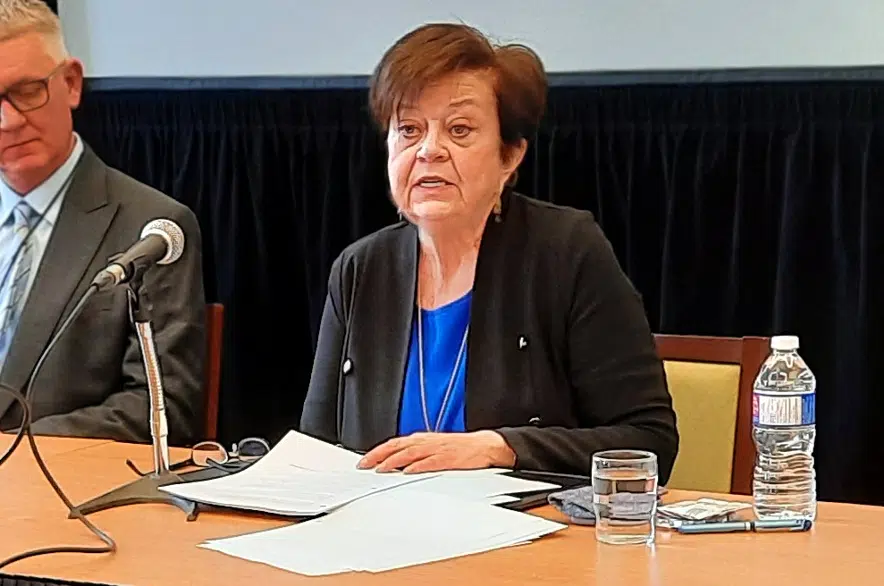Another year and another budget day rollout has gone by.
The 2023-24 provincial budget was unveiled Wednesday, and it elicited all sorts of responses.
The Saskatchewan Teachers’ Federation voiced its disappointment over the $192.8-million increase to funding for K-12 schools, early learning, child care and libraries. The organization said it would need at least $400 million to meet demands.
The teachers’ federation wasn’t the only organization voicing its displeasure.
“We certainly recognize that this budget provides a small increase for education on the operating side,” said Jaimie Smith-Windsor of the Saskatchewan School Boards Association (SSBA).
“But it does fall significantly short of covering what boards of education are going to need to cover inflationary costs, enrollment growth and operating expenses in the school divisions.”
She said the SSBA is hearing from school boards that the cost of school buses is up 35 per cent.
“On the capital side, we’re seeing the same thing (with a) commitment to new schools, but the 15 projects that exist are having a really hard time staying within budget (and) keeping up with the inflation in the construction industry. So there’s another example of inflationary pressures,” Smith-Windsor said.
“The cost of fuel, the cost of energy, those kinds of things impact school boards in the very same way they impact the public.”
Smith-Windsor said the board is starting to have questions about the quality of education that can be provided to students.
“This budget contributes to the erosion of the publicly funded system that we have in this province,” she said.
SUMA
Not all the reactions to the budget were negative. Additions to municipal revenue-sharing were praised by the Saskatchewan Urban Municipalities Association (SUMA).
Municipal revenue -sharing was increased by $35.3 million or 13.4 per cent — up to $297.9 million
“Overall SUMA is very pleased with what we heard about the increase in municipal revenue-sharing,” SUMA president Randy Goulden said.
“This is the highest it’s ever been, so we’re very pleased that this funding will go into our municipalities to help with the cost and the services that we provide for our residents.”
Goulden was especially pleased to see the increase in funding to EMS services, which she said would impact 27 new communities as well as increased funding to northern communities and forestry.
She said it will help solve the transportation issues, but also help provide good paying jobs for the people that live there.
However, Goulden still brought up a few concerns.
She said it’s very costly for municipalities to maintain their recreational and cultural facilities – and SUMA is looking at partnerships to fund those facilities.
“Is it enough? No, it is not enough because our municipalities cannot run deficits,” Goulden said. “So I can speak for my municipality (Yorkton). When we were doing our budget this year (it) was very, very difficult.
“You’re looking at the impact that it might have on, ‘Where do we save? Where do we cut?’ We still want to provide the same services, but we have less dollars to do it with.”
U of R
The 2023-24 budget counts as the third year of the University of Regina’s agreement with the provincial government.
The institution has been dealing with financial troubles and many employees have expressed worries about budget cuts.
But U of R president Jeff Keshen wasn’t caught off guard by the lack of new support.
“The budget is exactly as we expected it to be,” he said. “We’re in a four-year funding agreement with the province. We’re now finishing Year 2. Targeted funding has been provided to the university the last two years in the tune of $11 million to produce revenue.”
Keshen said the U of R has produced significant revenue from a record intake of international students this semester. He said that will shorten the U of R’s road to recovery.
However, other employees have expressed the possible need to revisit the university’s agreement with the government amid its financial troubles.







